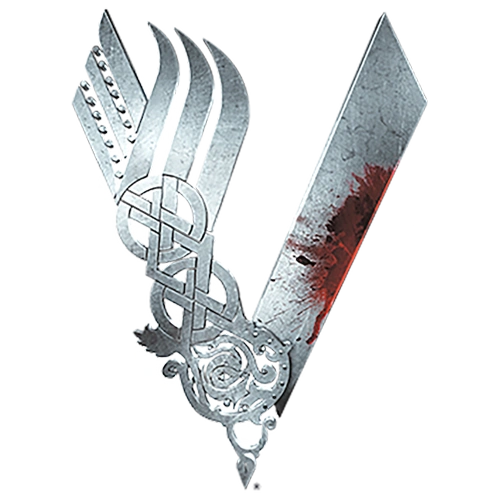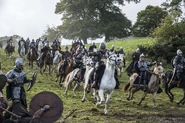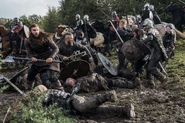Horik's English Campaign was a war of conquest mainly fought between the Kingdom of Denmark and the Kingdom of Wessex. The campaign was initially a large scale raid and exploration of the English Kingdom of Northumbria, but a major North Sea storm derailed the host of King Horik to Wessex.
Origin[]
Following Earl Ragnar Lothbrok's series of successful raids in Northumbria, King Horik wished to embark on a larger raid. Conflicts with Jarl Borg had previously occupied him, but a truce bargained by Ragnar had put the conflict to a halt. Ragnar suggested a larger scale invasion of England, opposed to the regular hit-and-run Viking raids. The prospect of the gains of an English campaign spoke to both Horik and Borg. The carpenter Floki had been wounded in the war between Horik and Borg and the heavy loses on both sides put the invasion on hold for several years. In the spring of 800 A.D., Floki had prepared a sufficient number of ships for the forces of the Earldom of Kattegat. However, during the years since the truce, King Horik wanted to back out and not have Jarl Borg join the campaign.
Battles[]
- Wessex River Ambush
- Sack of the Winchester Monastery
- Battle of Wessex
Aftermath[]
The main reasons for the Norse defeat can be boiled down to three reasons: King Ecbert's use of Roman tactics, the disorganization of Norse Warfare compared to English Warfare, and the incompetent leadership of King Horik. King Horik's decision to exclude Jarl Borg led to the Norse confederation losing a large number of capable warriors, at least 150 fighting men and shield-maidens. Further, the alienation of Borg led to the Geatish invasion of Kattegat, which meant Ragnar had to take part of his forces back his lands. The splitting of his forces allowed Ecbert to sack most of the original Viking force in Wessex, weakening the Norse confederation. Ragnar's presence in Wessex might have prevented the loss of the original raiding party as well as allowed for the muster of further reinforcements from Götaland and Denmark. Following Earl Ingstad's involvement, the initial momentum of the invasion was lost and the alliance of Wessex and Northumbria made a decisive victory even more difficult. King Horik's inept leadership in battle and alienation of his earls doomed the invasion as a failure.







